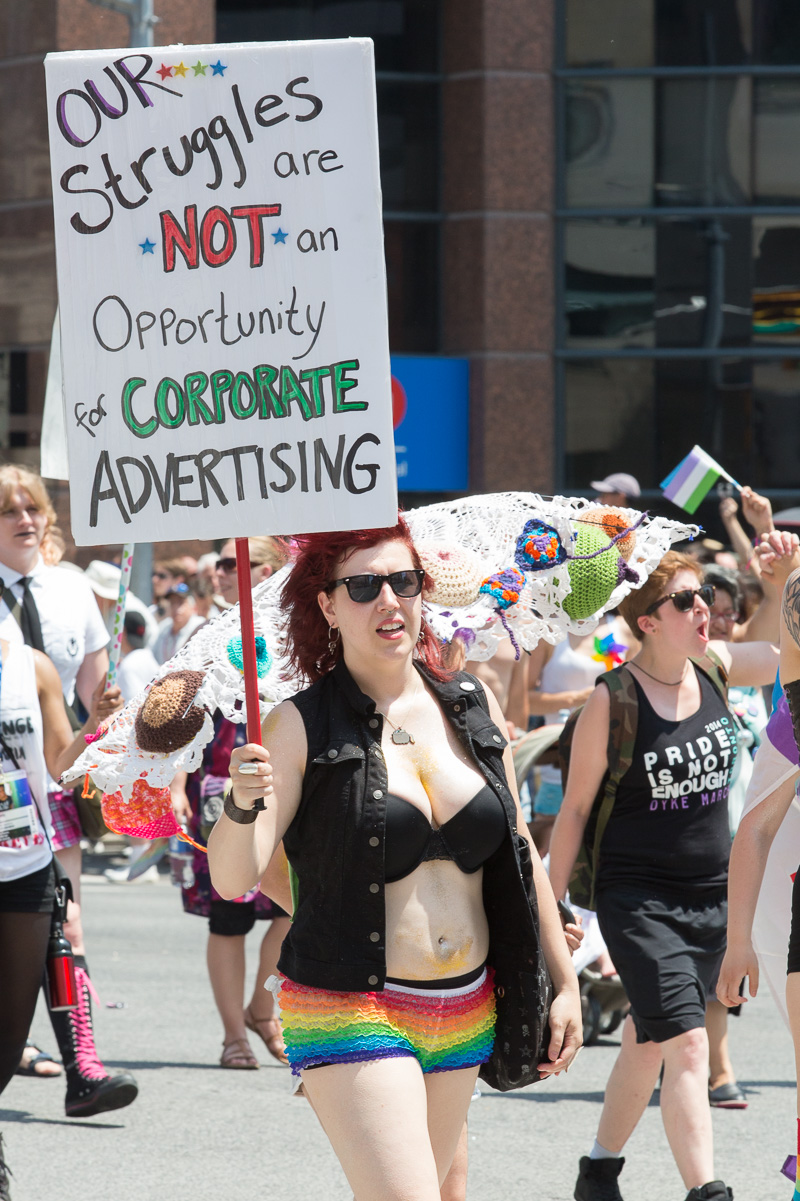I observe Toronto’s Pride Week the same way I observe Remembrance Day: with a great deal of skepticism. I want to remember. I want to remember how people struggled to carve out a space for themselves where they can live with a measure of dignity. I want to remember friends and family who succumbed to HIV/AIDS. And I want to celebrate the positive changes that have transformed the city and have made it a better place for everyone to live. Nevertheless, as with Remembrance Day, I feel queasy when I encounter historical revisionism tinkering with the narrative. When (mostly ideological) interests use their positions of power to recast themselves as protagonists in the narrative, I begin to suspect that Pride’s project is never really done.
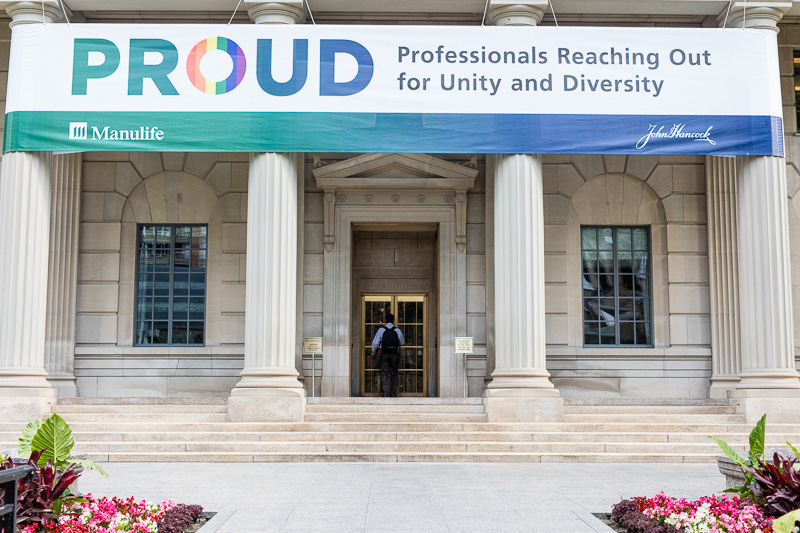
During Remembrance Day, we hear a quasi-religious account of blood sacrifice: our forebears spilled their blood to secure our freedom. But in late capitalism, freedom knows only one form of expression: shopping. Pride Week has taken on a similar narrative and financial institutions have cast themselves in the role of principal storyteller: we have always been there to finance LGBTQ struggles.
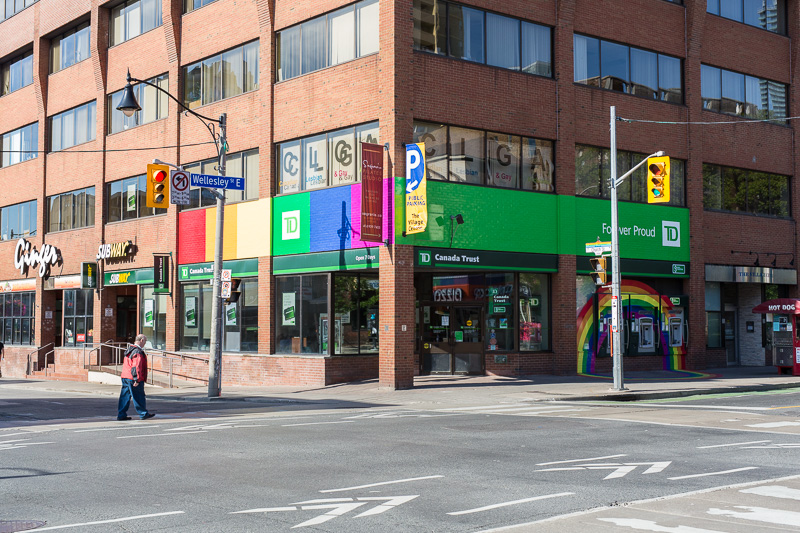
Of course it’s a good thing that banks and political parties support Pride and declare solidarity with people who aren’t like BMO’s bowler hat guy. But it does set up a conflict. Isn’t part of Pride’s story tied to its marginal position in relation to power? Maybe capital has engaged in a strategic queering of queer by embracing it. Contested spaces grow murky and people can no longer clearly define what they’re struggling for. Capital is the ultimate force in an egalitarian universe: it doesn’t matter who you are, if the numbers work, we’ll always approve your mortgage.
While Rob Ford was mayor, we enjoyed a brief reversion to the good old days when hatred’s mouthpiece was an unsubtle redneck and the contested ground was easy to mark. Now, our man in office may function more like the banks with what appears to be a gift for expediency. If the numbers work (at the polls or in the budget), he’ll always approve your proposals.
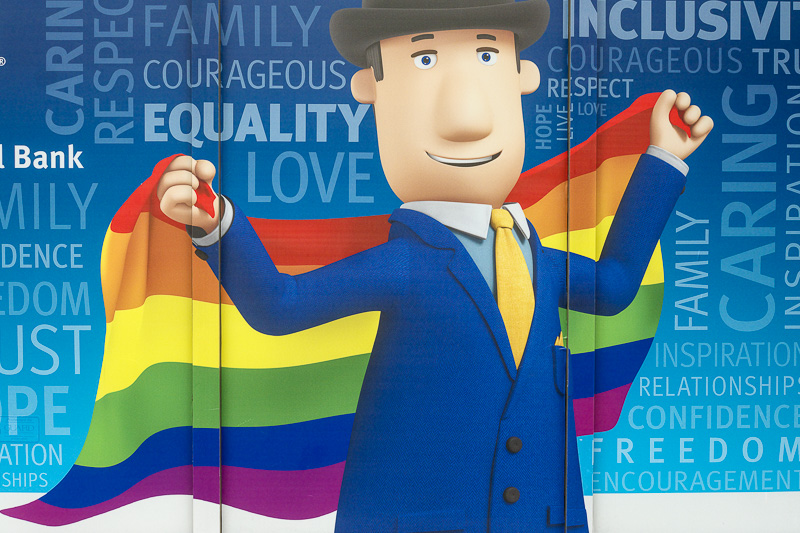
Do I need to point out that expediency (whether financial or political) is not the same thing as ethics?
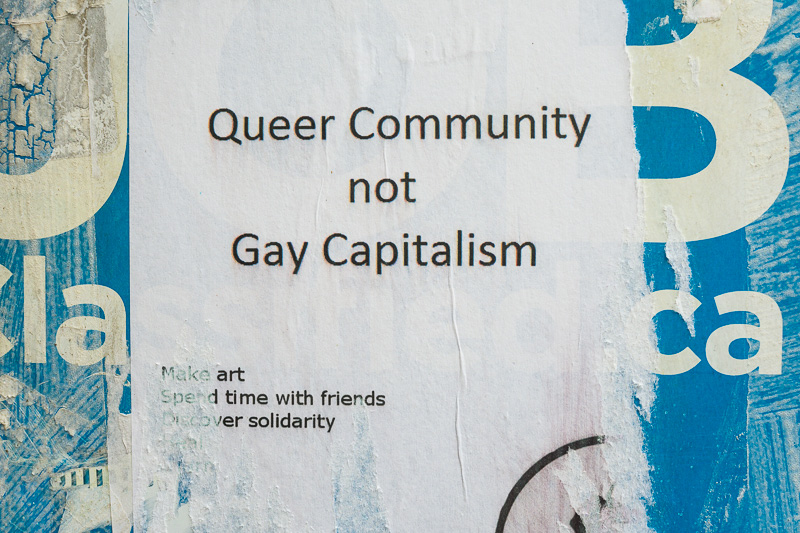
I will continue to observe Pride Week, as I do Remembrance Day, in part to perform what I regard as an act of witnessing, but mostly out of curiosity. I have questions for our culture and I’m looking for answers. What is the mood of our times? Who holds power? Who’s left out? What happens when those left out suddenly find power sidling up to them? When queer acquires cachet, who holds queer to account? Who queers queer?
